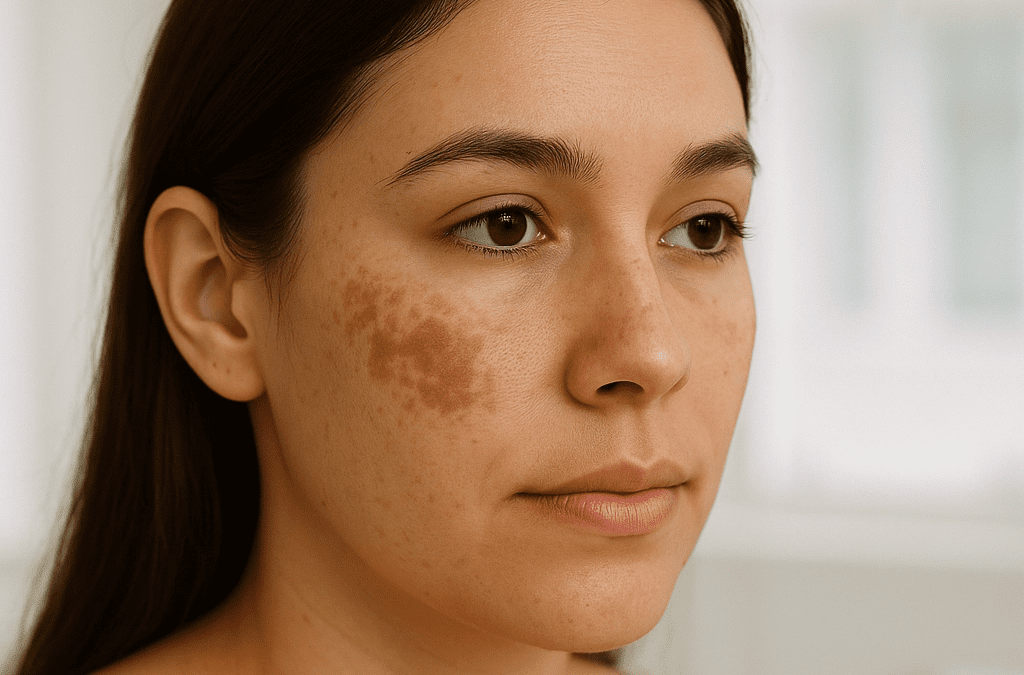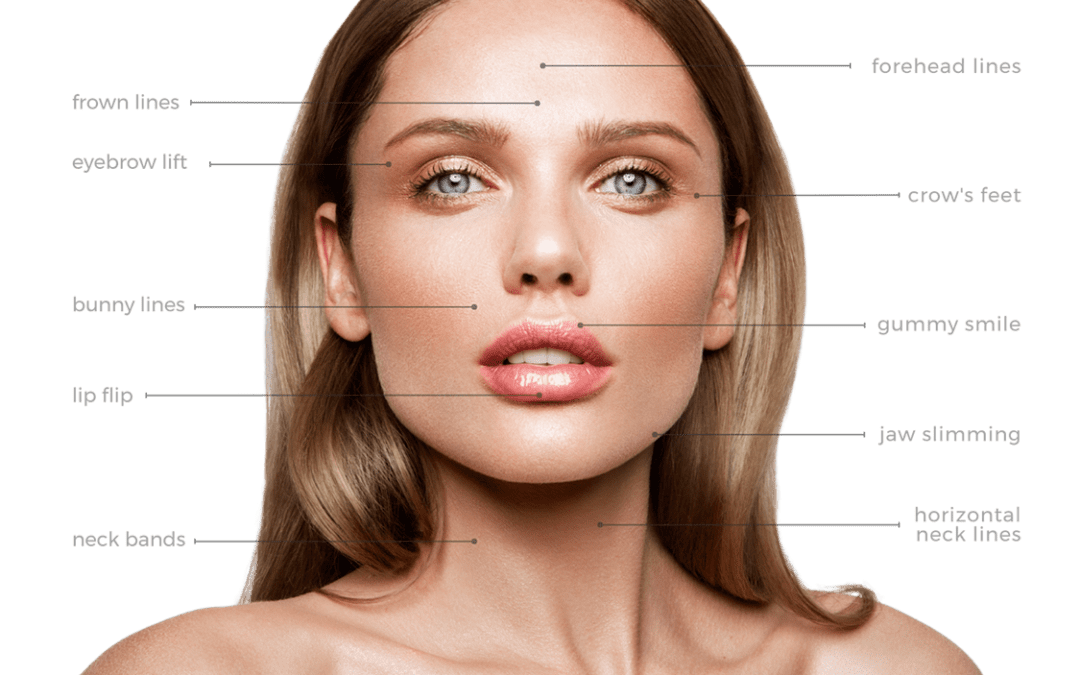
Beautiful and healthy skin is a reflection of proper skincare, and choosing the right products tailored to your specific skin type is paramount. With a multitude of skincare products available in the market, the journey to achieving radiant and flawless skin can be overwhelming.
This comprehensive guide will walk you through the essential steps in selecting skincare products that align with your unique skin type and concerns. From identifying your skin type to understanding product labels and ingredients, we’ll help you make informed choices that will transform your skincare routine.
Determine Your Skin Type
Normal Skin
Normal skin is well-balanced, with minimal issues like excess oil or dryness. It has a smooth texture, small pores, and is not prone to frequent breakouts.
Oily Skin
Oily skin tends to produce excess sebum, leading to a shiny appearance, enlarged pores, and a predisposition to acne and blackheads.
Dry Skin
Dry skin lacks moisture and may feel tight, rough, or flaky. It can be sensitive and prone to redness and irritation.
Combination Skin
Combination skin exhibits characteristics of multiple skin types. It can be oily in the T-zone (forehead, nose, chin) and dry or normal in other areas.
Sensitive Skin
Sensitive skin is prone to irritation, redness, and discomfort. It may react negatively to certain products, environmental factors, or ingredients.
Understanding Product Labels
Ingredients List
Ingredients are listed in descending order of concentration. Familiarize yourself with common ingredients for your skin type and any potential allergens or irritants to avoid.
Product Claims
Be cautious of exaggerated claims like “miracle cure” or “instant results.” Look for products that make realistic promises based on their ingredients.
Skin Type Indications
Some products are specifically formulated for certain skin types. Look for labels that mention suitability for normal, oily, dry, combination, or sensitive skin.
Expiration Date
Check for the expiration date to ensure product freshness and efficacy. Expired products may not deliver the desired results.
Building a Basic Skincare Routine
Cleansing
Choose a gentle cleanser appropriate for your skin type. Oily skin benefits from foaming or gel-based cleansers, while dry skin may require a creamy or hydrating cleanser. Sensitive skin types should opt for fragrance-free, hypoallergenic options.
Moisturizing
Regardless of your skin type, moisturizing is essential to maintain skin hydration and a healthy barrier. Use a moisturizer suitable for your skin type. Oily skin should opt for lightweight, oil-free formulas, while dry skin requires richer, hydrating creams.
Sun Protection
Sunscreen is non-negotiable. Opt for a broad-spectrum sunscreen with at least SPF 30, even on cloudy days. Many moisturizers and foundations also contain SPF, simplifying your routine.
Tailoring Your Routine to Your Skin Type
Oily Skin
- Use an oil-free, non-comedogenic sunscreen.
- Consider products containing salicylic acid or benzoyl peroxide to address acne and reduce oiliness.
- Use a gentle, foaming cleanser to remove excess oil.
Dry Skin
- Look for moisturizers rich in ceramides, hyaluronic acid, or glycerin to lock in moisture.
- Avoid harsh, alcohol-based toners.
- Consider incorporating a hydrating serum into your routine.
Combination Skin
- Use a mattifying product on the T-zone and a hydrating product on drier areas.
- Adjust your skincare routine based on the season. You may require richer products in the winter and lighter ones in the summer.
Sensitive Skin
- Choose fragrance-free, hypoallergenic products.
- Perform a patch test before introducing new products.
- Avoid abrasive scrubs or harsh exfoliants.
Specialty Products and Ingredients
Acne-Prone Skin
- Consider products with salicylic acid, benzoyl peroxide, or niacinamide to address breakouts.
- Use a non-comedogenic, oil-free moisturizer.
Anti-Aging
- Look for products containing retinoids (retinol, tretinoin) or peptides to target fine lines and wrinkles.
- Use a broad-spectrum sunscreen daily to prevent premature aging.
Hyperpigmentation
- Products with ingredients like vitamin C, alpha hydroxy acids (AHAs), or licorice root extract can help reduce dark spots.
- Sun protection is crucial to prevent further pigmentation.
Hydration
- Incorporate products with hyaluronic acid, glycerin, or ceramides to boost skin hydration.
Consistency is Key
Consistency in your skincare routine is vital for seeing results. Stick to your chosen products and give them time to work. It often takes weeks or even months to notice significant improvements in your skin.
Consult a Dermatologist
For persistent skin concerns, contact us for personalized recommendations, prescribed medications, or to discuss professional treatments like chemical peels or laser therapy for more complex issues.
Choosing the right skincare products for your skin type is a crucial step in achieving healthy, radiant skin. By understanding your skin type, deciphering product labels, and customizing your routine with appropriate products and ingredients, you can embark on a skincare journey that caters to your unique needs and concerns. Remember that patience and consistency are key.
Also check out our some of our recommended skincare products.

What to Expect with a Full-Body Skin Exam
Why Regular Full-Body Skin Exams Are Essential in Arizona Living in Arizona means enjoying abundant sunshine year-round. While our sunny climate offers many benefits, it also puts us at higher risk...

Melasma in Arizona: Tips and Best Practices
Living in Arizona means enjoying abundant sunshine almost year-round, but this desert blessing comes with unique skin challenges. Among these, melasma stands out as a particularly frustrating...

Skincare Routines for Teens, Adults, and Seniors
At Arizona Skin Institute, we understand that skincare isn't one-size-fits-all. Your skin's needs evolve dramatically throughout your life, requiring different approaches and ingredients at each...

Preventative Boxox in Your 20s
When you hear the word Botox, you probably picture someone smoothing out fine lines and wrinkles that have already formed. Traditionally, Botox has been thought of as a way to turn back the clock —...

Skincare Ingredients to Avoid if You Have Rosacea
If you have rosacea, you know that your skin can feel like it’s walking a tightrope: one wrong step, and you're dealing with stinging, intense redness, or even painful flare-ups that can last for...

Skin Purging vs Breakouts: How to Tell the Difference
If you’ve ever started a new skincare product only to find your skin looking worse before it looks better, you’re not alone. It’s a frustrating experience that often leads to confusion: Is my skin...

When To Consult A Dermatologist
Our skin is often a reflection of our overall health, acting as a visible indicator of internal balance or imbalance. While minor changes like occasional dryness or mild irritation are typically...
